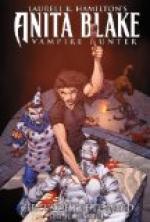Then another work was prefaced by the Right Hon. William Eden, and all were ‘embellished with beautiful coloured plates,’ and ran through several editions. Once only did he return to poetry, the favoured medium of his youth, and he returned to write an imperishable line. Even then his pedantry persuaded him to renounce the authorship, and to disparage the achievement. The occasion was the opening of a theatre at Sydney, wherein the parts were sustained by convicts. The cost of admission to the gallery was one shilling, paid in money, flour, meat, or spirits.
The play was entitled The Revenge and the Hotel, and Barrington provided the prologue, which for one passage is for ever memorable. Thus it runs:
From distant climes,
o’er widespread seas, we come,
Though not with much
eclat or beat of drum;
True patriots we, for
be it understood,
We left our country
for our country’s good.
No private views disgraced
our generous zeal,
What urged our travels
was our country’s weal;
And none will doubt,
but that our emigration
Has proved most useful
to the British nation.
‘We left our country for our country’s good.’ That line, thrown fortuitously into four hundred pages of solid prose, has emerged to become the common possession of Fleet Street. It is the man’s one title to literary fame, for spurning the thievish practice he knew so well, he was righteously indignant when The London Spy was fathered upon him. Though he emptied his contemporary’s pockets of many thousands, he enriched the Dictionary of Quotations with one line, which will be repeated so long as there is human hand to wield a pen. And, if the High Constable of Paramatta was tediously respectable, George Barrington, the Prig, was a man of genius.
THE SWITCHER AND GENTLEMAN HARRY
I—THE SWITCHER
David Haggart was born at Canonmills, with no richer birthright than thievish fingers and a left hand of surpassing activity. The son of a gamekeeper, he grew up a long-legged, red-headed callant, lurking in the sombre shadow of the Cowgate, or like the young Sir Walter, championing the Auld Town against the New on the slopes of Arthur’s Seat. Kipping was his early sin; but the sportsman’s instinct, born of his father’s trade, was so strong within him, that he pinched a fighting cock before he was breeched, and risked the noose for horse-stealing when marbles should have engrossed his boyish fancy. Turbulent and lawless, he bitterly resented the intolerable restraint of a tranquil life, and, at last, in the hope of a larger liberty, he enlisted for a drummer in the Norfolk Militia, stationed at the moment in Edinburgh Castle. A brief, insubordinate year, misspent in his country’s service, proved him hopeless of discipline: he claimed his discharge, and henceforth he was free to follow the one craft for which nature and his own ambition had moulded him.




